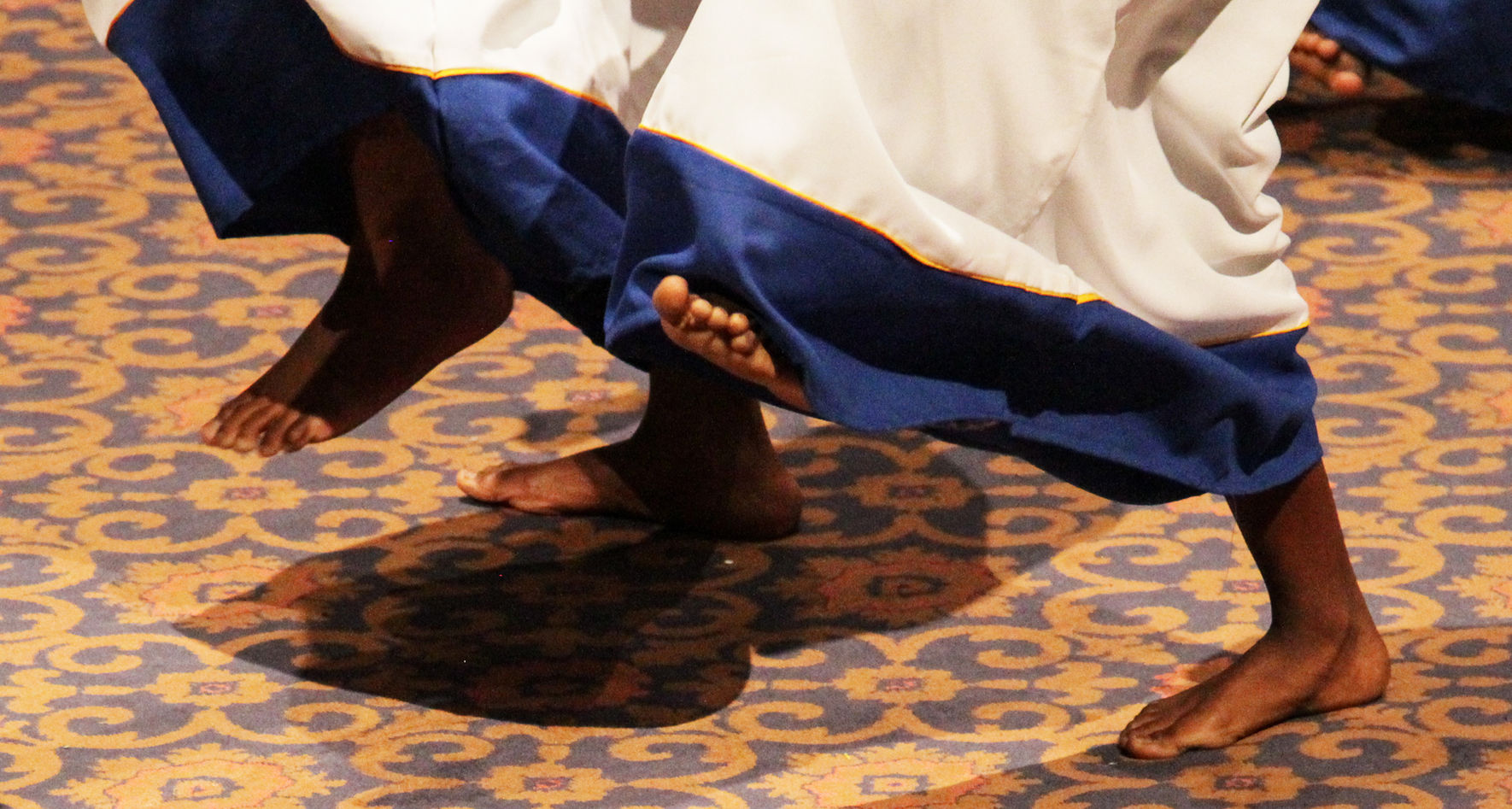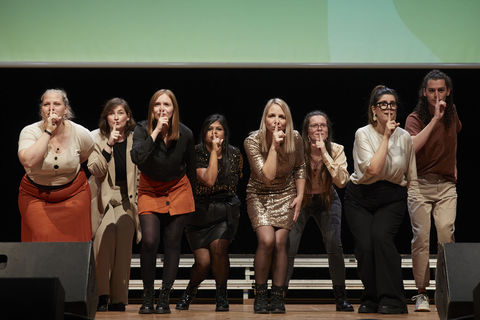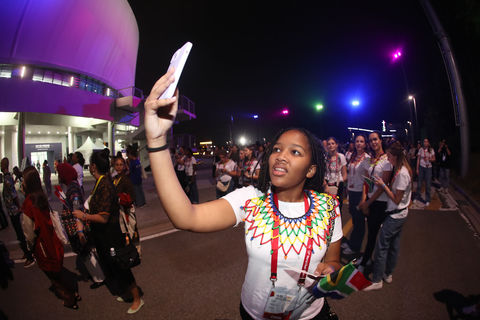
Nelson Mandela and the choral movement in South Africa
Ludumo Magangane, member of the World Choir Council from South Africa, about Nelson Mandela and the choral movement in his country
Preamble
I need to mention that during the struggle for liberation in South Africa, both the visual and performing arts depicted the Black people’s struggle through painted works, dramatizations and choral compositions. The choral compositions covered the period from the Cape Frontier Wars right up to Nelson Mandela’s release in 1990. The choral compositions were not confined to Nelson Mandela, but covered various aspects of the struggle.
Mandela’s incarceration
During Nelson Mandela’s incarceration in Robben Island, the call for his release started gaining momentum within South Africa and internationally – Bishop Tutu was one of those who were very vocal about that locally (in South Africa). A few choral composers started writing songs demanding Mandela’s release – this also spread to other music genres. Choirs performed these songs without fear of being thrown in jail. They did so in concert halls, or sang such compositions as choice pieces in choral competitions. Some of the compositions incorporated the ‘toyi-toyi’ format into the choral compositions. [ The Soweto Gospel Choir, as a tribute to Nelson Mandela just after his death, did a ‘flash mob’ in one of our supermarkets, singing a choral arrangement of a song entitled “Asimbonanga uMandela” (we did not see Mandela), which is originally composed by Johny Clegg.]
The 'street' choir
The Black youth that was politically active would gather illegally in youth rallies and meetings. When not discussing they would break off into chants (rhythmic spoken word in a ‘call-and-response’ format) and also sing struggle songs. During the period when the call for Nelson Mandela’s release intensified, the struggle songs also joined this call. The most popular song during this period was “Oliver Tambo thetha no Botha akhulul’uMandela” (Oliver Tambo talk to Botha {president of the time} and ask him to release Mandela). Some of these struggle songs asking for Mandela’s release were quoted in choral compositions that carried the same message.
Nelson Mandela is released from prison
After Nelson Mandela’s release in February 1990, there was euphoria in South Africa. A choir by the name of Imilonji ka Ntu removed words from an existing Xhosa folk song and put in “Nelson Mandela usilethela uxolo” (Nelson Mandela brings us peace) and popularised this version. Mzilikazi Khumalo, one of the fore-most composers and arrangers of African music, wrote a song “Insizw’endala” (The old chap) – referring to Mandela. In the song Mandela says “I am from the island”. After Nelson Mandela’s inauguration as president of South Africa in 1994, Mfanufikile Chonco, a young composer who has since passed away, wrote a song entitled “Ingqwele” (The Champion). In the song the composer likens Mandela to a bull who displaced another bull – a euphemism for Mandela taking over from President De Klerk.
The National Anthem of South Africa
Before 1994, White South Africa sang “Die Stem” as the official national anthem of South Africa, while Black South Africa sang “Nkosi Sikelel’iAfrika” as the de facto Black national anthem. Nelson Mandela gave an instruction that both be sung as one anthem. Later he felt that it was a very long anthem, and he instructed a music committee that was led by Mzilikazi Khumalo to cut it short. The anthem committee came up with what is today the official national anthem of South Africa.
Nelson Mandela and his response to choral music
Whenever a choir sang folk music in an event where Nelson Mandela was present, he would stand up and dance, to an extent that his dance movement accompanied by his broad smile became famous in the country. When he took ill, two performances in Johannesburg and in Cape Town were organized as tributes to Nelson Mandela.



